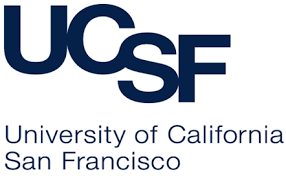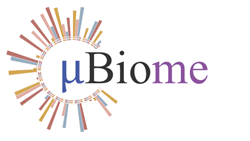 Spending on entitlement programs like Medicare and Medicaid consumes some two-thirds of all federal spending, but new research from the University of Notre Dame shows that information technology investments in health care lead to significant spending reductions — potentially in the billions of dollars...
Spending on entitlement programs like Medicare and Medicaid consumes some two-thirds of all federal spending, but new research from the University of Notre Dame shows that information technology investments in health care lead to significant spending reductions — potentially in the billions of dollars...
University of California San Francisco
See the following -
How the Gut Microbiome May be Key in Post-Surgery Organ Failure after Heart Surgery in Children
 University of Arizona pediatric critical care physician-scientist Katri Typpo, MD, wants to improve the health of infants and children with congenital heart disease (CHD). These patients often suffer organ failure after heart repair surgery. Toward that end, Dr. Typpo, assistant professor, UA Department of Pediatrics and the UA Steele Children’s Research Center at the UA College of Medicine - Tucson, within the University of Arizona Health Sciences, was awarded a four-year, $740,000, K23 “Mentored Patient-Oriented Research Career Development” grant by the National Institute of Diabetes and Digestive and Kidney Diseases...
University of Arizona pediatric critical care physician-scientist Katri Typpo, MD, wants to improve the health of infants and children with congenital heart disease (CHD). These patients often suffer organ failure after heart repair surgery. Toward that end, Dr. Typpo, assistant professor, UA Department of Pediatrics and the UA Steele Children’s Research Center at the UA College of Medicine - Tucson, within the University of Arizona Health Sciences, was awarded a four-year, $740,000, K23 “Mentored Patient-Oriented Research Career Development” grant by the National Institute of Diabetes and Digestive and Kidney Diseases...
- Login to post comments
Popular Mobile Health Apps Fail to Serve Vulnerable Populations
 A new UC San Francisco study of top-rated mobile health apps showed that they offer little help to vulnerable patients – those who might benefit the most from these tools. The new study, published in the July 14, 2016 online issue of the Journal of General Internal Medicine, was conducted with 26 patients at The Priscilla Chan and Mark Zuckerberg San Francisco General Hospital and Trauma Center (ZSFG), a UCSF partner hospital that treats many low-income patients. Although participant income was not directly queried, a majority of patients at ZSFG qualify for publically funded insurance, or do not have insurance.
A new UC San Francisco study of top-rated mobile health apps showed that they offer little help to vulnerable patients – those who might benefit the most from these tools. The new study, published in the July 14, 2016 online issue of the Journal of General Internal Medicine, was conducted with 26 patients at The Priscilla Chan and Mark Zuckerberg San Francisco General Hospital and Trauma Center (ZSFG), a UCSF partner hospital that treats many low-income patients. Although participant income was not directly queried, a majority of patients at ZSFG qualify for publically funded insurance, or do not have insurance.
- Login to post comments
Study Shows Electronic Health Information Exchanges Could Cut Billions in Medicare Spending
- Login to post comments
The HITECH Era – A Patient-Centered Perspective
We appreciate the recent perspectives published in the New England Journal of Medicine on the Health Information Technology for Economic and Clinical Health (HITECH) Act of 2009 and the positive impact that it and resulting health IT policies have had on U.S. health care.1,2 The perspectives highlighted the remarkable increase in adoption and use of electronic health records (EHRs) over the past eight years, thanks to the HITECH Act and to ONC’s and CMS’s implementation of it with major advice and help from the multi-stakeholder HIT Policy and Standards committees...
- Login to post comments
The Problem of “Copy and Paste” in Electronic Records
A study of 23,630 internal medicine progress notes written by 460 different hospitalists, residents, and medical students found that a mean of only 18% of the text was created by hand with 46% copied and pasted from previous note or somewhere else and 36% imported from another part of the record such as a medication list. The analysis, done at the University of California San Francisco*, was possible because the Epic electronic medical record used there can provide the provenance of every character entered in a progress note...
- Login to post comments
UCSF Researcher to Investigate Diabetes and the Microbiome in Filipino Populations with uBiome Microbiome Impact Grant
 Microbial genomics leader uBiome has awarded a Microbiome Impact Grant to Dr. Mark Seielstad of the University of California, San Francisco. Dr. Seielstad will investigate how patients’ risk of developing type 2 diabetes is affected by where they live. In partnership with the Philippine Genome Center, Dr. Seielstad will study the gut microbiome of Filipino type 2 diabetes patients in Manila and San Francisco, comparing them with an equivalent number of healthy control subjects in each city...
Microbial genomics leader uBiome has awarded a Microbiome Impact Grant to Dr. Mark Seielstad of the University of California, San Francisco. Dr. Seielstad will investigate how patients’ risk of developing type 2 diabetes is affected by where they live. In partnership with the Philippine Genome Center, Dr. Seielstad will study the gut microbiome of Filipino type 2 diabetes patients in Manila and San Francisco, comparing them with an equivalent number of healthy control subjects in each city...
- Login to post comments
You Won't Believe the Outrageous Ways Big Pharma Has Bribed Doctors to Shill Drugs
 At the 2010 meeting of the American Psychiatric Association in New Orleans, a psychiatrist from the East coast shared her anger with me about the recent clamp down on Pharma financial perks to doctors. Before news organizations and the 2010 Physician Financial Transparency Reports (also called the Sunshine Act, part of the Affordable Care Act) reported the outrageous amount of money Pharma was giving doctors to prescribe its new, brand-name drugs, there was almost no limit to what was spent to encourage prescribing...
At the 2010 meeting of the American Psychiatric Association in New Orleans, a psychiatrist from the East coast shared her anger with me about the recent clamp down on Pharma financial perks to doctors. Before news organizations and the 2010 Physician Financial Transparency Reports (also called the Sunshine Act, part of the Affordable Care Act) reported the outrageous amount of money Pharma was giving doctors to prescribe its new, brand-name drugs, there was almost no limit to what was spent to encourage prescribing...
- Login to post comments